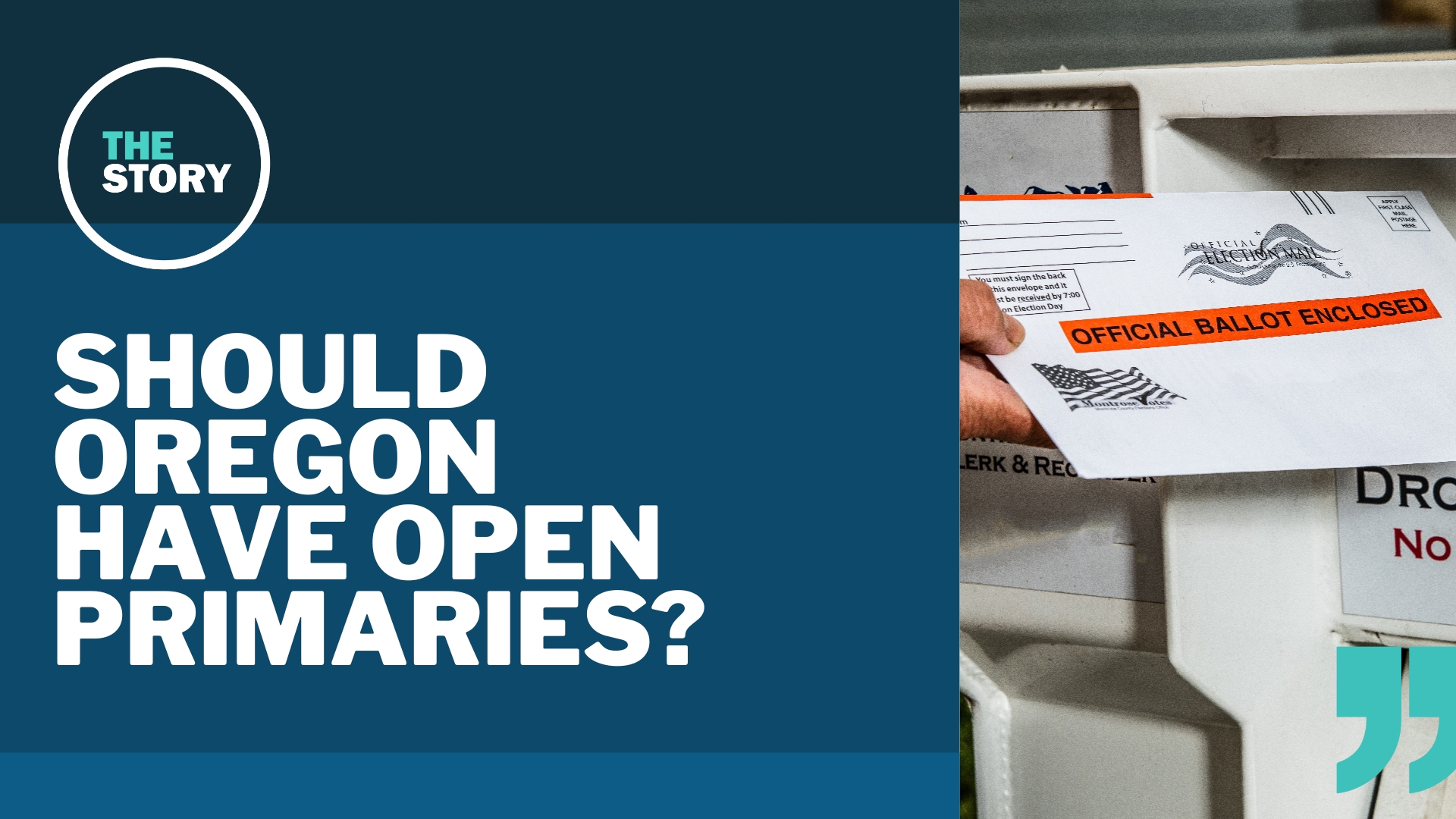OREGON, USA — With Oregon's primary election less than a month away, those looking to vote in partisan races will need to make sure they've picked a political party by next week.
That's because Oregon has closed primaries, which means voters can only vote within the party they're registered with — Democrats can only pick Democratic candidates, and vice versa with Republicans; neither can cross over and vote for the other party's nominees.
Meanwhile, if you're an Independent, registered with a minor party, or a non-affiliated voter, you can only vote in the nonpartisan races.
Oregon is one of the 15 states that have closed or partially closed primaries. In some states, only one party has closed their primary.
Under Oregon law, the parties could choose to have open primaries, but they haven't.
There are arguments on both sides of keeping primaries closed.
ICYMI: Who won Super Tuesday?
Supporters say registered party members are more invested in their candidates, and they worry that non-party members could try to sabotage the party by voting for a weaker candidate.
Opponents say primaries should be open to everyone in a democracy and that closed primaries produce more extreme candidates because they're only trying to appeal to their party's base.
Now, there's an ongoing effort to open up Oregon's primary: the group All Oregon Votes has been trying for several election cycles to get a measure onto the ballot that would make the change.
A case for open primaries
"Closed primaries restrict voters from participating in that May election, which is a crucial stage of our democracy. Who we elect to lead us, and the solutions that they bring forth to the public sphere — those are so important that all voters are heard," said Michael Calcagno, an All Oregon Votes volunteer. "In Oregon today, 2 out of every 3 elections, whether it's Congress or our state legislators... the winners are decided in the primary, and when we restrict voting rights for independent voters, we're basically saying, 'No, thanks. You don't get to participate in this most important stage of voting, but you can participate in November.'"
The effort isn't going well, though.
All Oregon Votes said they aren't going to get enough signatures to get on the ballot this year. They had the same problem in 2022, but they're planning to keep up the effort and try again in 2026.
The last two times open primary measures did make it to the ballot, they failed: in 2014 and in 2008.
But they have a pretty straightforward reason to keep trying: Oregon actually has a much larger number of independent and nonaffiliated voters than it does people registered to a party, so the biggest chunk of voters in the state will be left out of primary voting.
As of April, there are about 994,000 registered democrats, or about 32% of voters. There are 722,000 republicans, or 24% of voters. That's compared to 1.1 million non-affiliated voters, and 204,000 people registered with minor parties.
Altogether, 43% of voters in Oregon don't belong to a major party.
Calcagno said open primaries would allow voters to look more critically at the candidate, not the party.
"The great thing about open primaries is they don't tip the balance in favor of Republicans or in favor of Democrats. We know that Independents are free thinkers; they are swing voters. They decide based on the person, not the party," Calcagno said.
"We know from a lot of studies that the majority of those Independent voters truly do hold more progressive values that are reflective of the state; so, in general, we're not going to be drastically changing the outcomes of elections," he continued. "We're just going to be unshackling politicians from always preaching the party line and never reaching across the aisle. Our close primary system rewards politicians who are there to score political points, instead of who are there to solve real problems with solutions that are acceptable to both sides of the aisle."
So, what exactly do I need to do for the May 21 primary?
If you're not registered as a Democrat or a Republican, you'll still get a ballot — you just won't have a lot of those big races on there.
If you do want to join one of those parties and vote in their primary, you have until next Tuesday, April 30, to do so. You can go online to oregonvotes.gov/register or go to your elections office to check or change your registration and party affiliation.
In the general election in November, everyone will be able to vote for whichever party they like, regardless of their registration.

